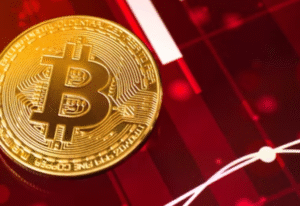$SPX $DJIA $BTC
#election2024 #stockmarket #earnings #politics #investing #conferencecall #volatility #equities #business #economy #crypto #presidentialelection
As the U.S. steers closer to the next presidential election, an increasing number of companies are proactively discussing its potential impact during their earnings conference calls. In particular, businesses across diverse sectors — including financial services, technology, and consumer goods — are stressing the significance of this event. Historically, companies tend to shy away from addressing political matters, but this year the sheer uncertainty around the election’s outcomes and potential market volatility has led them to break tradition and communicate concerns directly with investors. While corporate leaders often aim to be conservative in such discussions, the increase in mentions is notable. For market observers, this serves as a metric to forecast upcoming trends in individual stock performance as well as overall market movements.
This rise in election-related discussions coincides with increased market volatility, which is already a hallmark of pre-election periods. Investors are jittery, often prompting swings in indices like the $SPX (S&P 500) and $DJIA (Dow Jones Industrial Average). Analysts note that sectors particularly sensitive to political policy shifts, such as healthcare, financials, and energy, tend to see greater fluctuations. Additionally, currencies and digital assets like Bitcoin ($BTC) are prone to sharp movements during times of political uncertainty as investors seek hedges or higher-yielding assets. For instance, crypto-assets could gain more importance as investors diversify portfolios during uncertain times, while equities may experience choppier trades.
Companies are not only discussing potential regulatory changes and tax policies post-election, but also addressing concerns over consumer sentiment and spending behavior, which can dramatically shift depending on the political landscape. Consumer confidence tends to wane, or at the very least, remain volatile when major leadership transitions are on the horizon or when debates over fiscal stimulus, tariffs, and trade agreements take center stage. This uncertainty can prompt corporations to pause capital investments or push back growth initiatives until there is more clarity on which party will dominate federal policy. CEOs are increasingly addressing these scenarios during Q&A sessions with analysts, reflecting the fact that the business environment could diverge sharply depending on the election results.
For investors, this uptick in election mentions is much more than just corporate chatter — it could serve as a leading indicator of how key sectors might fare in the short to medium term. With political risk now front and center, more cautious strategies such as reducing exposure to high-volatility stocks or increasing holdings in safe-haven assets could become more common. Traders, anticipating increased market turbulence around Election Day, are likely to adjust their portfolios accordingly. Many are turning towards derivative markets or volatility index funds to hedge against abrupt price swings, particularly in sectors heavily impacted by legislative changes. The growing conversation around the upcoming election suggests that, from Wall Street to Main Street, sentiment in U.S. markets is closely tethered to the unfolding political narrative.











Comments are closed.